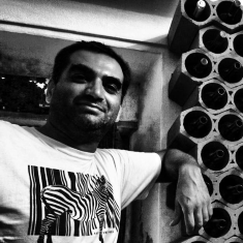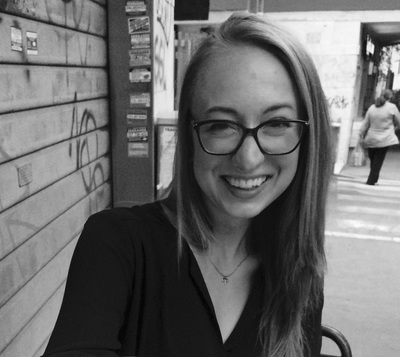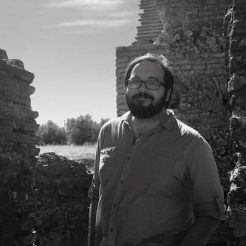Meet the Directors
Rui Mataloto is the archaeologist and cultural officer for the Municipality of Redondo, Portugal. He holds an MA in Prehistory and Archaeology from the University of Lisbon and has worked as a professional archaeologist in the Alentejo region for over a decade. He also serves as a researcher for UNIARQ, the Center for Archaeology at the University of Lisbon, and as vice president of the PortAnta Archaeological Cooperative. He has published extensively on the archaeology of Alto Alentejo, including the Carta Arqueológica de Redondo (2001) and many articles on topics in the Bronze Age, Iron Age, and Roman Republican periods. Rui's research interests encompass lithics, prehistoric landscapes, and interactions between indigenous Alentejans and Roman settlers.
Karilyn Calvert earned her MA in Classics at the University of Notre Dame after completing her BA in Classics, Anthropology, and Ancient Greek at the University of New Hampshire. She has excavated and conducted archaeological research in Portugal, Italy, and Albania and worked with a variety or artifact types, from ceramics and lithic to seashells and waterlogged wood. Karilyn’s research interests lie on the frontiers of the Roman Empire, chiefly in innovative craftsmanship, hybridization, and the question of identity.
Dr. Joey Williams is a lecturer in the Department of Humanities & Philosophy at the University of Central Oklahoma. He holds a PhD in Mediterranean Archaeology from the Department of Classics at the University at Buffalo (2014), an MA in Classical Archaeology from the University of Arizona (2007), and a BA from Hendrix College (2004). Joey has worked extensively on archaeological projects in both Italy and Portugal, and he has run summer programs at the Museu Nacional de Arqueologia in Lisbon. His dissertation Surveillance, Visibility, and the Colonial Encounter in the Early Roman Central Alentejo, Portugal: 100 B.C.E. – 100 C.E. is a groundbreaking study of this region of the Roman empire. Joey's research focuses on landscape archaeology and material culture with a particular lens on cross-cultural interaction and the transformation of colonized spaces.
Melissa Yorio is a graduate student at the University of Notre Dame where she studies Early Christian archaeology and Classics. She joins the Caladinho project as a supervisor in 2023. In previous summers, she worked at Caladinho as a field school student and on other archaeological projects in the Mediterranean.
Karilyn Calvert earned her MA in Classics at the University of Notre Dame after completing her BA in Classics, Anthropology, and Ancient Greek at the University of New Hampshire. She has excavated and conducted archaeological research in Portugal, Italy, and Albania and worked with a variety or artifact types, from ceramics and lithic to seashells and waterlogged wood. Karilyn’s research interests lie on the frontiers of the Roman Empire, chiefly in innovative craftsmanship, hybridization, and the question of identity.
Dr. Joey Williams is a lecturer in the Department of Humanities & Philosophy at the University of Central Oklahoma. He holds a PhD in Mediterranean Archaeology from the Department of Classics at the University at Buffalo (2014), an MA in Classical Archaeology from the University of Arizona (2007), and a BA from Hendrix College (2004). Joey has worked extensively on archaeological projects in both Italy and Portugal, and he has run summer programs at the Museu Nacional de Arqueologia in Lisbon. His dissertation Surveillance, Visibility, and the Colonial Encounter in the Early Roman Central Alentejo, Portugal: 100 B.C.E. – 100 C.E. is a groundbreaking study of this region of the Roman empire. Joey's research focuses on landscape archaeology and material culture with a particular lens on cross-cultural interaction and the transformation of colonized spaces.
Melissa Yorio is a graduate student at the University of Notre Dame where she studies Early Christian archaeology and Classics. She joins the Caladinho project as a supervisor in 2023. In previous summers, she worked at Caladinho as a field school student and on other archaeological projects in the Mediterranean.


